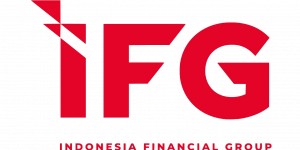Penulis: Ibrahim Kholilul Rohman [1], Rizky Rizaldi Ronaldo [2], Mohammad Alvin Prabowosunu [3] dan Rosi Melati [4]
The emergence of digitalization has been a big boost for economic growth amidst the Covid-19 pandemic. Google, Temasek and Bain (2021) projects that the South-East Asia (SEA)’s internet economy will reach $360B by 2025. Indonesia is leading the parade of nations entailing 20% compound annual growth rate (CAGR) until 2025 and accumulating about $146B of gross merchandise value (GMV) – a fraction of 40% of the total GMV in the region.
Digital sectors tend to involve cross-border data to streamline the transaction of goods and services. The rapidly growing electronic commerce drives data flows where data gets monetized and adds value to the global marketplaces.
The value-added generation is particularly apparent from the skyrocketing performance of the regional marketplaces especially among the three largest players. Shopee booked their revenue about $1.29 billion in Q2/2020 with projected growth about 112.3% (yoy). Lazada recorded $4,5 billion in GMV in 2020. In 2019 only, Tokopedia’s GMV was estimated at over $15 billion from 100 million active users.
On theoretical ground, digital industry is attributable to the existence of the two-sided markets, or in the modern context the multi-sided markets. Prominent economist Jean-Charles Rochet and Jean Tirole define two-sided markets as markets in which one or several platforms enable interactions between end-users and try to get the two (or multiple) sides “on board” by appropriately charging each side.
Digital marketplaces face buyers and sellers as two distinct groups. Buyers prefer many sellers, and, the opposite, sellers prefer many buyers in the same platform. The problem arises when these interactions are involving a lot of data transfers where platforms generally have the ability to aggregate data and might further monetize it for other purposes such as by selling it to the third parties.
There are two-side of coin on the cross-border data flow. On the one hand, based on the Global System for Mobile Communications Association’s (GSMA’s) report in 2018, data flows had increased productivity and contributed significantly to Indonesia’s gross domestic product of $24.5 billion in the retail sector and $34.5 billion in the manufacturing sector.
On the other hand, digital industries and e-commerce platforms are not immune by a possible breach of data that might cost a fortune in the economy. IBM study in 2021 shows that data breach costs has increased from USD 3.86 million to USD 4.24 million, the highest in 17 years of its observation.
Thus, the issue of cross-border data revolves around a potential trilemma, a trade-off between data mobility, personal privacy and security, and data monetization. As the “impossible trinity” in the Mundell-Fleming trilemma in the macroeconomic setting. Thus, for most countries, only two of the three targets can be attained. To exemplify, an overutilized data might trigger data hacking, hence data privacy can be threatened, and partner countries might ‘close’ the data flow border, rendering data monetization from foreign companies out of equation.
Indonesia as the largest economy in the ASEAN region has committed to bring the issue of the cross-border data flow as part of G20 dialogue. IFG Progress study in 2022 identifies that Indonesia’s stand should be adaptive to balance the trilemma that yields three possible policy options.
Option 1: big data monetization with secure data privacy but monetization might only be done locally due to limited cross-border data flows. Option 2: a fairly open cross-border data flows with huge data monetization but with a relatively greater risk of data privacy and security leaks. Option 3: a relatively secure data privacy and security with a fairly open cross-border data flows but little-to-none impact on real economy due to small data monetization opportunity.
The strategy taken might be different depending on the maturity of the digital economy in each country. The Fletcher School (2021) report classified four stages of digital development across countries: the stand-out economies (countries that show digital advancement and exhibit high momentum), the stall-out economies (countries that show digital advancement and but with slower momentum), the break-out economies (countries that have a low score in digitalization but evolving rapidly) and the watch-out economies (countries that have low score in digitalization and slow momentum).
Linking these two frameworks, we can map the following pairing: the watch-out economies might prioritize the option 2 as they focus on data monetization and cross-border data flow as main objectives. Countries that score exceptionally low both in evolution state and momentum might prioritize the benefits of the internet platforms in the absence of privacy and security. As they grow and become more mature, they move to the next stage where they strengthen their privacy and security without sacrificing data monetization (option 1).
The last stage (option 3) will be more appropriate for countries aims at maintaining prudent and safe cross-border data flow while keeping their data privacy and security with a remarkably high standard. Countries that could accomplish this last stage mainly consist those at the later stage of the maturity level of digitization.
Navigating countries from the first into last stage is key to maximizing the benefit of digitalized economy. Developing countries including Indonesia should well adapt to each possible scenario in the trilemma options.
Most advanced countries like the European union equipped with a strong General Data Protection Rights (GDPR) and strong cross-border data flow within the region under the Europe’s Digital Single Market flagship might no longer face this trilemma as they have all necessarily framework condition to ensure these three goals are coherent.
In summary, for most countries, “there ain’t no such thing as a free lunch” referring to what the famous economist Milton Friedman paraphrased when explaining the opportunity cost concept as the core of economics. It also applies in the trilemma of the cross-border data flow
Note:
– This article was published in the Jakarta Post with the title “G20: Indonesia’s stand on cross-border data flow”.
[1] Senior Research Associate di IFG Progress
[2], [3], [4] Research Associate di IFG Progress


